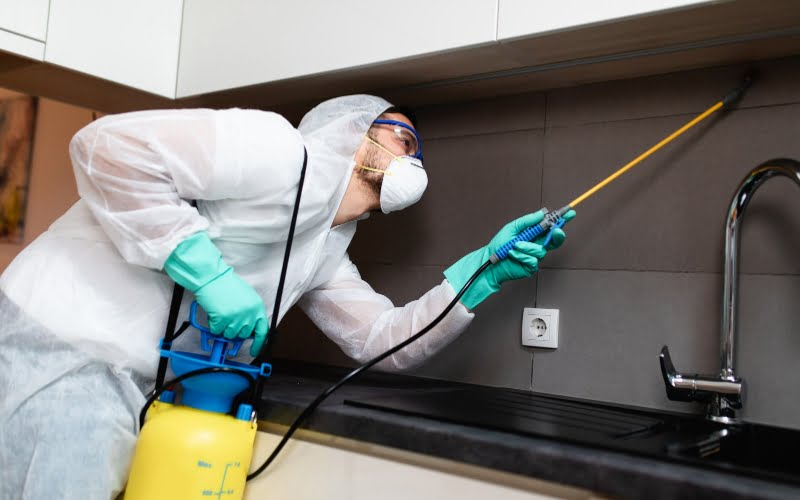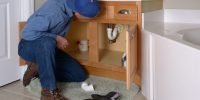Last Updated on March 18, 2024 by Kelvin Nielsen
If you’re a tenant in Delaware, you may be wondering how long your landlord has to fix a mold problem. The answer depends on several factors, including the severity of the mold, the cause of the mold, and the terms of your lease agreement.
Generally, landlords have a legal obligation to provide a safe and habitable living environment for their tenants, which includes addressing mold problems in a timely manner.

Under Delaware law, landlords are responsible for removing mold from rental properties if the mold was present before the tenant moved in. Landlords must also take steps to prevent mold growth in the future, such as fixing leaks and addressing moisture issues.
If a landlord fails to address a mold problem in a timely manner, tenants may have legal recourse, including the ability to withhold rent or terminate their lease agreement.
If you’re dealing with a mold problem in your rental property, it’s important to understand your legal rights and obligations. While landlords have a legal obligation to address mold problems, tenants also have a responsibility to keep the property clean and report any issues to the landlord in a timely manner.
By working together, landlords and tenants can prevent and address mold problems in a way that protects everyone’s health and safety.
Key Takeaways
- Landlords in Delaware are responsible for removing mold from rental properties if it was present before the tenant moved in.
- Tenants have the right to a safe and habitable living environment, which includes addressing mold problems in a timely manner.
- If a landlord fails to address a mold problem, tenants may have legal recourse, including the ability to withhold rent or terminate their lease agreement.
Related Posts:
- Report Your Landlord in Delaware
- How Long Does a Landlord Have to Fix Something in Delaware?
- Can You Withhold Rent in Delaware? A Guide to Tenant Rights
Legal Obligations and Time Frames
Notice and Repair Timeline
As a tenant in Delaware, you have the right to live in a habitable dwelling, free from mold and other health hazards. If you discover mold in your rental unit, you must notify your landlord in writing within 15 days of discovery. Your landlord must then repair the mold problem promptly, within a reasonable time frame.
Landlord Responsibilities
Under Delaware law, landlords are responsible for repairing and maintaining their rental properties in a safe and habitable condition. This includes addressing mold and other health hazards promptly. Landlords must comply with all applicable statutes, regulations, and ordinances related to mold remediation and tenant health and safety.
Tenant Remedies and Actions
If your landlord fails to repair the mold problem within a reasonable time frame, you may have several remedies available to you as a tenant. You may be able to withhold rent until the issue is resolved or terminate your lease if the mold renders your rental unit uninhabitable.
However, it is important to note that tenants must also fulfill their responsibilities under the lease and Delaware landlord-tenant laws, including requesting repairs in writing and not engaging in activities that contribute to mold growth.
Overall, it is important for both landlords and tenants to understand their legal obligations and responsibilities related to mold in rental properties in Delaware. By working together and following all applicable laws and regulations, both parties can ensure a safe and healthy living environment.
Related Posts:
- What Rights Do Tenants Have in Delaware?
- What a Landlord Cannot Do in Delaware? A Comprehensive Guide
Consequences and Legal Proceedings

Health Implications and Liability
If you suspect mold in your rental property, it is important to act quickly. Exposure to mold can cause serious health problems, including respiratory issues, allergic reactions, and other health problems.
Landlords have a legal responsibility to provide safe and habitable living conditions for their tenants. Failure to address mold issues can result in legal consequences, including lawsuits and damages.
Legal Recourse for Tenants
If your landlord fails to address a mold problem, you may have legal recourse. Delaware law allows tenants to withhold rent if the landlord fails to make necessary repairs. You may also be able to repair and deduct the cost of repairs from your rent.
If the landlord still does not address the issue, you may be able to terminate the lease and seek possession of the property through Summary Possession. You can also file a lawsuit against your landlord for negligence.
It is important to note that legal proceedings can be complex and time-consuming. It is recommended that you consult with an attorney who is knowledgeable in landlord-tenant law. If you cannot afford an attorney, you may be able to seek assistance from the Justice of the Peace Court or mediation services.
Keep in mind that violations of Delaware’s landlord-tenant laws can result in serious consequences, including loss of property value, medical bills, and lost wages.
Disclosure: The content herein isn’t a substitute for advice from a professional attorney. It’s only meant to serve educational purposes. If you have a specific question, kindly seek expert attorney services.
Sources: Residential Landlord-Tenant Code, Warranty of Habitability in Delaware, CHAPTER 53. Landlord Obligations and Tenant Remedies

Amanda Rose is a seasoned landlord with 13+ years of expertise in overseeing diverse properties. Her adept management spans single and family homes, along with multi-family apartments and condos, across Wyoming and South Dakota. Her commitment and proficiency have cemented her status as a thriving property management professional.
She is a member of the following organizations: Wyoming Landlord’s Association, National Association of Residential Property Managers (NARPM), Wyoming Apartment Association, South Dakota Multi-Housing Association (SDMHA), and South Dakota Landlord Association (SDLA).







![How Long Does A Landlord Have To Make Repairs? [All 50 US States] How long does a landlord have to make a repairs?](https://landlordtenantresource.com/wp-content/uploads/2025/03/mold2-200x100.jpg)